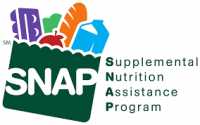
20 Aug SNAP: After New Work Requirements More Than 1/3 Lost Food Assistance
MedicalResearch.com Interview with:
 Leighton Ku, PhD, MPH
Leighton Ku, PhD, MPH
Professor, Dept. of Health Policy and Management
Director, Center for Health Policy Research
Milken Institute School of Public Health
George Washington University
Washington, DC 20052
MedicalResearch.com: What is the background for this study?
Response: In this study, we examined how requirements that low-income adults work in order to keep their food assistance benefits (SNAP, formerly called food stamps) affects the number of people receiving benefits. Briefly, we found, based on analyses of data from 2,410 counties from 2013 to 2017, that soon after work requirements are introduced, more than a third of affected participants lose their food assistance. This meant that about 600,000 poor adults lost food assistance very quickly.
This is important for two reasons:
(1) Work requirements create greater hardship, including food insecurity and increased risk of health problems, when poor people lose their nutrition benefits.
(2) The Trump Administration is trying to broaden this policy, expanding it further in SNAP, but also applying work requirements to Medicaid (for health insurance) and public housing benefits. This is a massive effort at social experimentation that will cause tremendous harm.
And the sad part is that we already know, from other research, that these work requirement programs do not actually help people get jobs, keep them or to become more self-sufficient. This is because the work requirements do not address the real needs of low-income unemployed people, to learn how to get better job skills or to have supports, such as child care, transportation or health insurance, that let them keep working.
MedicalResearch.com: What are the main findings?
Response: The loss of SNAP benefits meant that about $2.5 billion in nutrition assistance was not distributed in 2017 alone. The loss means less food is sold in grocery stores and hurts local economies. It is plausible that these policies actually cause jobs to be lost, rather than gained.
MedicalResearch.com: What should readers take away from your report?
Response: There is scant evidence that work requirement policies applied in public benefit programs like SNAP or Medicaid help people get jobs or become more self-sufficient, while there is ample evidence that they instead create further hardships for those who are already struggling. They increase hunger and food insecurity and could trigger more serious health problems if people can’t afford enough to eat or if they lose their health insurance coverage.
Whether work requirements can be applied in Medicaid has already been challenged legally and, the Trump Administration’s policies have been rejected four times as being contrary to law And yet the Administration stubbornly continues to promote these policies. When USDA issues final work requirement regulations, these too are likely to be challenged in court.
MedicalResearch.com: What recommendations do you have for future research as a result of this work?
Response: The nation should explore more effective ways to help low-income adults improve their education and skills and provide the kinds of supports, such as child care, that will help them gain meaningful employment.
Citation:
The Effects of SNAP Work Requirements in Reducing Participation and Benefits From 2013 to 2017.
Subscribe box:
[subscribe]
Last Modified:
Last Modified : [last-modified]
The information on MedicalResearch.com is provided for educational purposes only, and is in no way intended to diagnose, cure, or treat any medical or other condition. Always seek the advice of your physician or other qualified health and ask your doctor any questions you may have regarding a medical condition. In addition to all other limitations and disclaimers in this agreement, service provider and its third party providers disclaim any liability or loss in connection with the content provided on this website.
Last Updated on August 20, 2019 by Marie Benz MD FAAD
